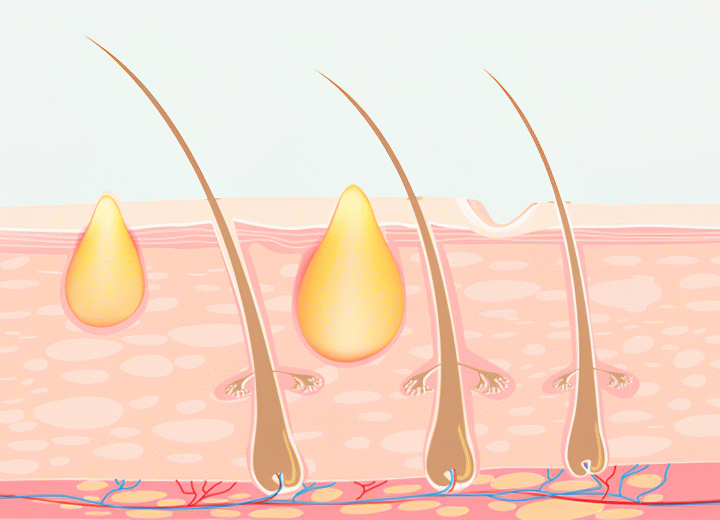Scalp Acne

A: If you have scalp acne (scalp zits), it’s important to inform your stylist before your haircut. A good stylist will examine your scalp before any service to assess its condition. Depending on local health and safety regulations, some salons may not be permitted to perform haircuts on clients with active scalp breakouts due to infection control policies.
Assuming the haircut is allowed, your stylist will work carefully to avoid irritating the affected areas. Vigorous brushing or scratching can worsen inflammation or even cause small cuts, increasing the risk of infection. A gentle approach, combined with hygienic practices, should make the process safe.
Now that we’ve addressed haircut safety, let’s discuss what scalp acne is and how to treat it. The scalp is covered with numerous hair follicles that produce hair, but the skin itself is quite similar to facial skin. People prone to facial acne often experience scalp breakouts as well, ranging from mild irritation to deep, painful cysts.
Scalp acne can develop for several reasons:
• Excess oil (sebum) and clogged pores – Often due to infrequent washing, heavy hair products, or naturally oily skin.
• Hormonal fluctuations – Common during puberty, menstruation, pregnancy, or stress.
• Bacterial or fungal overgrowth – Sometimes linked to conditions like folliculitis.
For oil-related acne, you can use a salicylic acid-based face wash on your scalp, massaging the lather gently into the skin rather than the hair strands. Salicylic acid helps exfoliate dead skin cells and unclog pores. However, avoid benzoyl peroxide on the scalp. It can bleach hair, particularly if it’s color-treated or naturally light.
If you use conditioner, opt for a lightweight, spray-on leave-in formula that won’t sit on the scalp and contribute to oil buildup. Heavy creams or oils can exacerbate acne by trapping bacteria and sebum.
If over-the-counter treatments don’t improve your scalp acne - or if you suspect hormonal causes - consult a dermatologist. They may prescribe topical or oral medications, such as antibiotics, retinoids, or anti-androgen drugs (for hormonal acne in adults). In persistent cases, professional treatments like cortisone injections or specialized shampoos (e.g., ketoconazole for fungal-related acne) may be necessary.
Proper scalp care, combined with medical advice when needed, can help manage breakouts and keep your scalp and hair healthy.
©Hairfinder.com
See also:
Scalp problems
Can I get pimples on my scalp if I leave the towel on my head longer than I should?
My pores get clogged easily. Where can I find non-comedogenic shampoo and conditioner?